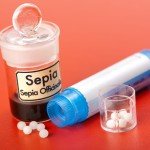MDMA Found to Increase Cooperation With Others
Node Smith, ND
A new study from England suggests that MDMA may increase people’s willingness to cooperate with each other.1 A lot of interest has been given to MDMA, a commonly used street drug called ecstasy or molly. Pure MDMA is currently being heavily researched for its potential in treating mental health conditions such as PTSD and depression. The drug is often touted as having the ability to increase feelings of emotional closeness and empathy for others.
MDMA made people more cooperative
The study found that MDMA made people more cooperative, though only when individuals were already deemed as trustworthy. In other words, MDMA doesn’t create trust, but may facilitate action based on trust that already exists.
MDMA increased brain activity involved in social interaction
The researchers also saw that MDMA increased brain activity involved in social interaction and the understanding of other people’s intentions and thoughts.
Currently studied as possible treatment for PTSD
MDMA is currently being studied as a possible treatment for PTSD, and these findings give a better idea of the socio-emotional effects of the drug.
MDMA is currently illegal in the United States. It is known to increase chemicals in the brain that are associated with mood and behavior – such as dopamine and serotonin. However, not very much is known about how these chemicals interact with the brain to create complex social behavior.
Study looked at 20 healthy men
The study looked at 20 healthy men (20s and 30s). None of the participants had a history of psychiatric or substance use disorders. All of the participants had taken MDMA at least one time prior to the study.
Individuals were randomly put into groups to either receive 100 mg of pure MDMA (the chemical 3,4-methylenedioxymethamphetamine) or a placebo. They were then asked to play a game, called the Prisoner’s Dilemma, where participants choose to either compete or cooperate with other players. If the players cooperate they both get points, if one player chooses to cooperate but the other to compete, the one who competes gets all the points.
The study
The participants were actually playing against a computer, but were told they were playing against real people. The responses were preprogrammed. The programming was to be either “trustworthy,” meaning the computer cooperated in most games, or “untrustworthy,” meaning it competed in most games.
Findings of the study
The study found that individuals who took the MDMA were more likely to cooperate if the other player (computer) was trustworthy, compared to the placebo group. However, the MDMA did not seem to have an effect on their cooperation with untrustworthy players – both placebo and MDMA group cooperated with untrustworthy players at the same rate.
During the study, participants who were “betrayed” – they chose to cooperate but the opponent chose to compete – had a reduced tendency to cooperate on the next game. The MDMA group regained their cooperative behavior with future trustworthy opponents faster than the placebo group.
“This tendency to rebuild a relationship led to higher overall levels of cooperation with trustworthy partners,” said lead study author Anthony Gabay, a neuroscientist at the University of Oxford, who conducted the work while at King’s College London.
Findings may serve in future treatment of certain psychiatric conditions related to social intelligence
These findings may have implications in the treatment of certain psychiatric conditions that relate to social intelligence such as depression and schizophrenia.
 Node Smith, ND, is a naturopathic physician in Portland, OR and associate editor for NDNR. He has been instrumental in maintaining a firm connection to the philosophy and heritage of naturopathic medicine among the next generation of docs. He helped found the first multi-generational experiential retreat, which brings elders, alumni, and students together for a weekend camp-out where naturopathic medicine and medical philosophy are experienced in nature. Four years ago he helped found the non-profit, Association for Naturopathic ReVitalization (ANR), for which he serves as the board chairman. ANR has a mission to inspire health practitioners to embody the naturopathic principles through experiential education. Node also has a firm belief that the next era of naturopathic medicine will see a resurgence of in-patient facilities which use fasting, earthing, hydrotherapy and homeopathy to bring people back from chronic diseases of modern living; he is involved in numerous conversations and projects to bring about this vision.
Node Smith, ND, is a naturopathic physician in Portland, OR and associate editor for NDNR. He has been instrumental in maintaining a firm connection to the philosophy and heritage of naturopathic medicine among the next generation of docs. He helped found the first multi-generational experiential retreat, which brings elders, alumni, and students together for a weekend camp-out where naturopathic medicine and medical philosophy are experienced in nature. Four years ago he helped found the non-profit, Association for Naturopathic ReVitalization (ANR), for which he serves as the board chairman. ANR has a mission to inspire health practitioners to embody the naturopathic principles through experiential education. Node also has a firm belief that the next era of naturopathic medicine will see a resurgence of in-patient facilities which use fasting, earthing, hydrotherapy and homeopathy to bring people back from chronic diseases of modern living; he is involved in numerous conversations and projects to bring about this vision.









